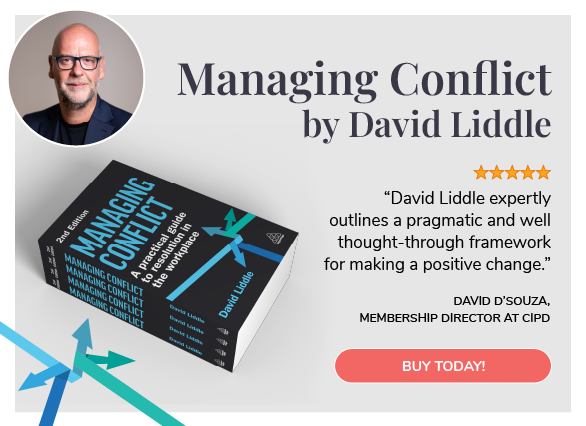
Share article:
Tags:
The power of mediation has been a revelation to me over the past year. Since joining TCM in February last year I’ve got to know far more about resolution, mediation and facilitated conversations than I knew existed and I’ve been blown away by how much damage can be repaired in a relatively short time.
To those not familiar with how impactful this can be, I should mention that more than 90% of disputes (from disagreement to full-scale grievance) are resolved through mediations led by TCM. These are issues that would otherwise be allowed to fester causing toxicity and dysfunctionality (and indirect costs in lowered productivity and performance). Many would also lead to investigations and tribunal, creating pain, misery and direct costs running into the 10s of thousands.
Mediation creates a mindset shift away from churning over the details of what has happened to cause conflict, towards a focus on reframing the situation to understand what each party needs now. Having been part of this world for a while now, the impact still mesmerises me. I’ve heard feedback from parties who’ve had their lives dominated by workplace conflict for months on end. Mediation has transformed their lives, from a point where, for many, their wellbeing had been greatly diminished.
People are capable of so much when they set their minds to resolving a problem. The skill of a mediator is to reveal to parties their own need to rebalance and heal working relationships and achieve a happier state of mind and plot a path to achieve that.
My role at TCM is centred around developing our leadership offering. For 20 years, we have been developing leaders across a variety of sectors ranging from the NHS to banking, pharmaceuticals, and the leisure industries. So much of what we do in leadership development can be learned from the mediation process.
[Please contact us if you’d like to discuss our Leadership offering (or our mediation services) with a member of the Senior Leadership Team.]
Mediation requires the capacity to listen actively to another person, which is also a crucial component to effective leadership. Many of us will have been tempted to give people in conflict with each other ‘A good talking to’. We may also have an instinctive desire to problem-solve when faced with a challenging situation. Mediation teaches us to do the opposite. Our number one priority should be instead, to give people ‘A good listening to’ (a direct quote from David Liddle, TCM CEO and author of the book: Managing Conflict)
Another key mediation skill is to help people reframe situations. When in conflict, we often only see things from one perspective. The mediation process enables for a mindset shift, and for individuals to gain a wider perspective of the situation. For leaders, this can also be a valuable tool in helping people recognise the value of change, and find a clear sense of their own purpose within an organisation.
Questioning skills are also key to the mediation process. By asking a series of questions with curiosity mediators help people to:
- Reflect on their own thoughts, emotions and actions
- Consider their own impact on the situation
- Identify the difference between what they want and what they actually need to happen
- Ultimately, to strive to identify common ground and a potential way forward.
Leaders with good questioning skills can use a coaching style to develop employees’ capability and self-awareness. Coaching for managers is an important aspect to all leadership programmes and it’s no surprise that this powerful tool of questioning is central to overcoming even the most challenging workplace disputes.
The mediation process seeks to explore a range of possible options and assess the relative benefits of each. Leaders who adopt a similar style can help teams realise that they aren’t confined to a single course of action, and alternative approaches may offer better decisions. This also generates a sense of autonomy amongst team members,
Finally, one of the most essential skills for a mediator is empathy and a strong sense of compassion. A mediator generates trust by remaining impartial throughout the process, and not falling into the trap of sharing either party’s frustrations. However, they must show empathy for the impact of the situation, and feelings that the parties have experienced. Leaders can build trust and promote engagement in exactly the same way. Emotionally intelligent leaders can anticipate how best to connect and inspire their individual team members. They recognise different motivations and drivers for engagement and build resilience by generating a sense of support.
So nearly one year on since I joined TCM I can see that mediation practice has such valuable lessons for leadership. Each of these transformational leadership competencies are also extremely practical capabilities for everyday life. Especially so with the challenges we currently face, when with no doubt, we all need a good listening to.
Please contact us if you’d like to discuss our Leadership offering (or our mediation services) with a member of the Senior Leadership Team.








